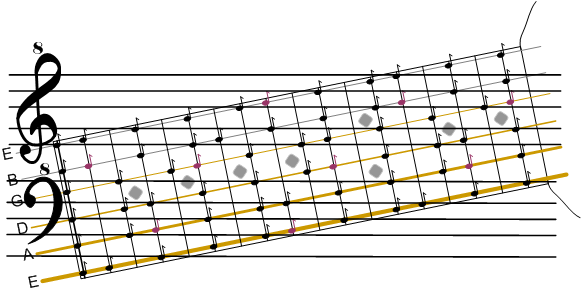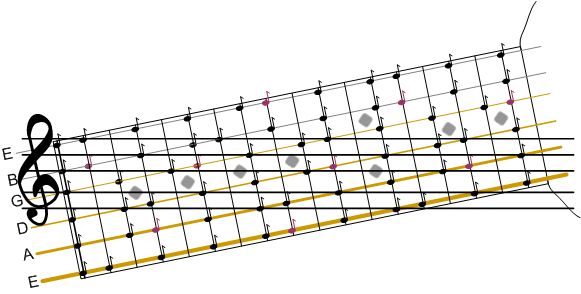The Tao that can be named is not the eternal Tao.
The name that can be named is not the eternal name.
The nameless is the beginning of heaven and earth.
The named is the mother of ten thousand things.
Ever desireless, one can see the mystery.
Ever desiring, one sees the manifestations.
These two spring from the same source but differ in name; this appears as darkness.
Darkness within darkness.
The gate to all mystery.
– Lao Tsu, Tao Te Ching
The greatest strength and the greatest weakness of humankind is our ability to name– our capacity and propensity to conceptualize the world. From this ability, we conquer the world and know the gods. But it is also the root of injustice, prejudice, and much misery.
We each live in a personal universe. Everything we know comes from personal experiences layered on endless memories, subconscious presumptions, and personally-selective hearing, sight, and feeling. Although we speak the same objective language, every symbol we use is uniquely subjective. The difficulty of communication is not only philosophically significant– it concretely affects every aspect of our lives.
If pragmatically we know that communication is possible, it’s equally clear that most of the world’s misery and disputes stem from pervasive failed communication and a lack of understanding. Relationships, business ventures, and movements are made or broken by the effectiveness of their communication. Sweatshop workers and Islamic extremists cannot make themselves heard by the institutions that oppress them. Corporations use misleading communication to direct honest emotions into a money-syphoning spiral. When good communication does happen, as in the work of Amy and Arnold Mindell, apparently intractable race tensions, social status divisions, and relationship dilemmas can melt away.
Following Thomas Nagel, what is it like to be another person? How does the world play upon her senses, and how does the emotional content of objects, situations, and decisions play out? In her political map of the conceptual world, what are the boundaries and border disputes of lust, or work, or family, or sugar, or formal wear? What does it feel like for a minute to pass? Someone wrote that a minute inside another person’s head would be wilder than the most intense acid trip, and I believe it.
Kim Krizan presents the quandary in Waking Life:
When I say “love,” the sound comes out of my mouth and it hits the other person’s ear, travels through this Byzantine conduit in their brain, through their memories of love or lack of love, and they register what I’m saying and they say yes, they understand. But how do I know they understand? Because words are inert. They’re just symbols. They’re dead. And so much of our experience is intangible. So much of what we perceive cannot be expressed. It’s unspeakable.
The unspeakable is much more common than it appears. In Euclid’s geometry, there are two kinds of numbers– the rational and the irrational. The rational are, by definition, those that can be put in relation to each other: 1, 2, 1/2, A x B, and their kin. We reason and define by putting things in relation. The irrational numbers are all the rest, and they can barely be identified, much less reasoned about.
And all real things are irrational. Reality can never be precisely measured, identified, or put in relation. It is nameless. It is only the abstractions that we create around real things which are rational. By naming the world, we create a parallel universe of things about which we can reason.
In the real world, there are no races, fathers, chairs, crimes, or companies. Any mode of identifying them will fail due to ambiguities in its internal definitions, application to all elements of the class, and application to the same object over time and space. Try it. Language itself is founded in the irrational, and all of our words (mathematical concepts excepting) are ultimately undefinable. The abstractions we make, no matter how sensible, are founded in the unspeakable, so their use necessarily lends itself to misunderstanding.
But language is not the extrapolation of definitions, although that’s how we describe it. The political boundaries of our conceptual world are infinitely fine– a fractal landscape– as well as fuzzy: they cannot be measured, because they are irrational. The structure of the meaning of words is founded on every level in irrationality.
It is exactly this irrationality that gives language its strength and makes communication possible.
What is said is only the tip of the communication iceberg. In person, we communicate on many levels simultaneously– through body language, voice tone, and reaction– but an isomorphic wealth is available in text (though, with more opportunity for miscommunication because there’s just less of it). The words we choose represent so much more than what they state.
That deeper communication is registered subconscious level. Cognitively, every word evokes a world of associations. We actually each contain many distinct worlds of names, which interact, exchange, rise, and fall (see “Don’t Think of an Elephant”). Every utterance carries with it a reflection of the world from which it was spoken, and the greatest effect of an utterance is to evoke that world within us.
All true communication is subconscious, and consists of this evoking of worlds. While the conscious mind is rational and name-bound, the unconscious mind is at least equally powerful but irrational.
The communications of the subconscious mind are exactly those things that are left unsaid. These are below the consciousness, so we don’t think to express them consciously. They nonetheless are expressed, albeit in the form, rather than the content, of our expressions. My favorite book on this is “Training Trances: Multi-Level Communication in Therapy and Training”.
Then how do we ensure good communication? Without dismissing the studies of rhetoric, neuro-linguistics, and therapy, all of which are effective ways to improve both conscious and subconscious communication, the most effective way to improve communication is to cultivate a sound subconscious mind. If your deepest believes, presumptions, and world-view are solid, that will be communicated.
In polyscriptivism, we can say that subconscious communication is concerned with communicating gods, rather than facts. Good communication comes from forming good relationships with the gods, so your subconscious has something to communicate. Only that can empower our words with sound meaning.
Life is a mystery, because it too is irrational. No amount of naming will make it any less mysterious. But, by seeking out our personal Tao, we can face that mystery with confidence, and communicate it with hope of a clearer meaning.



